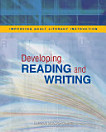The Vocation of the Scholar
Johann Gottlieb Fichte
нов 2023. · DigiCat
E-knjiga
47
Stranica
family_home
Ispunjava uslove
info
reportOcene i recenzije nisu verifikovane Saznajte više
O ovoj e-knjizi
In "The Vocation of the Scholar," Johann Gottlieb Fichte presents a profound exploration of the role and responsibilities of intellectuals within society. Written in the early 19th century during a period marked by rapid social and political change, Fichte's work blends philosophical inquiry with a passionate call for self-realization and moral duty. His straightforward yet evocative literary style emphasizes the necessity of striving for truth and understanding as a means to elevate both the individual and the collective. The work is deeply rooted in German Idealism, positing that the scholar's vocation is more than mere academic pursuit; it is an ethical obligation to apply knowledge for the betterment of humanity. Fichte, a key figure in the development of German philosophy, was greatly influenced by the tumultuous events of his time, including the Enlightenment and the upheaval of the Napoleonic Wars. His commitment to education and intellectual integrity emerged from his own experiences as a teacher and philosopher. Fichte's philosophies on self-consciousness and the dynamic interplay between the individual and society shaped his views on the transformative power of scholarship and its potential to foster social change. This book is an essential read for anyone interested in the intersection of philosophy, education, and societal progress. Fichte's insights into the moral imperatives of the scholar resonate powerfully in today's world, offering readers a reflective lens through which to view their own roles as knowledge seekers. Engaging with Fichte's arguments will undoubtedly inspire contemporary scholars and educators to consider their own responsibilities toward society.
O autoru
Johann Gottlieb Fichte (1762–1814) was a German philosopher, whose intellectual pursuits have significantly influenced the trajectory of German Idealism and have had enduring sway on metaphysics and epistemology. Born in Rammenau, Saxony, Fichte was originally educated at the Pforta school, before pursuing his academic aspirations at the universities of Jena, Leipzig, and Wittenberg. Fichte's erudite contribution, 'The Vocation of the Scholar' (1794), underscores his unequivocal commitment to the notion of Bildung—the edifying cultivation through education. In this seminal work, Fichte posits that scholars bear a civic responsibility to disseminate truth and knowledge, thereby underpinning the advancement of society. Fichte's philosophical edifice is often seen as a forerunner to existentialism and his painstaking dissection of consciousness has been pivotal in laying the groundwork for later thinkers like Schelling and Hegel. His style is marked by the rigorous analysis of the ego and the dialectic method, an investigative approach that seeks to understand the dynamic interplay of opposing forces within the subjective experience. Fichte was also a vanguard of the university model, advocating for an academic structure that is immersive and transformative. The ingenuity of his thought is embossed not only in the annals of philosophy but also in his role as a key figure in advocating for educational reform in Germany.
Ocenite ovu e-knjigu
Javite nam svoje mišljenje.
Informacije o čitanju
Pametni telefoni i tableti
Instalirajte aplikaciju Google Play knjige za Android i iPad/iPhone. Automatski se sinhronizuje sa nalogom i omogućava vam da čitate onlajn i oflajn gde god da se nalazite.
Laptopovi i računari
Možete da slušate audio-knjige kupljene na Google Play-u pomoću veb-pregledača na računaru.
E-čitači i drugi uređaji
Da biste čitali na uređajima koje koriste e-mastilo, kao što su Kobo e-čitači, treba da preuzmete fajl i prenesete ga na uređaj. Pratite detaljna uputstva iz centra za pomoć da biste preneli fajlove u podržane e-čitače.







